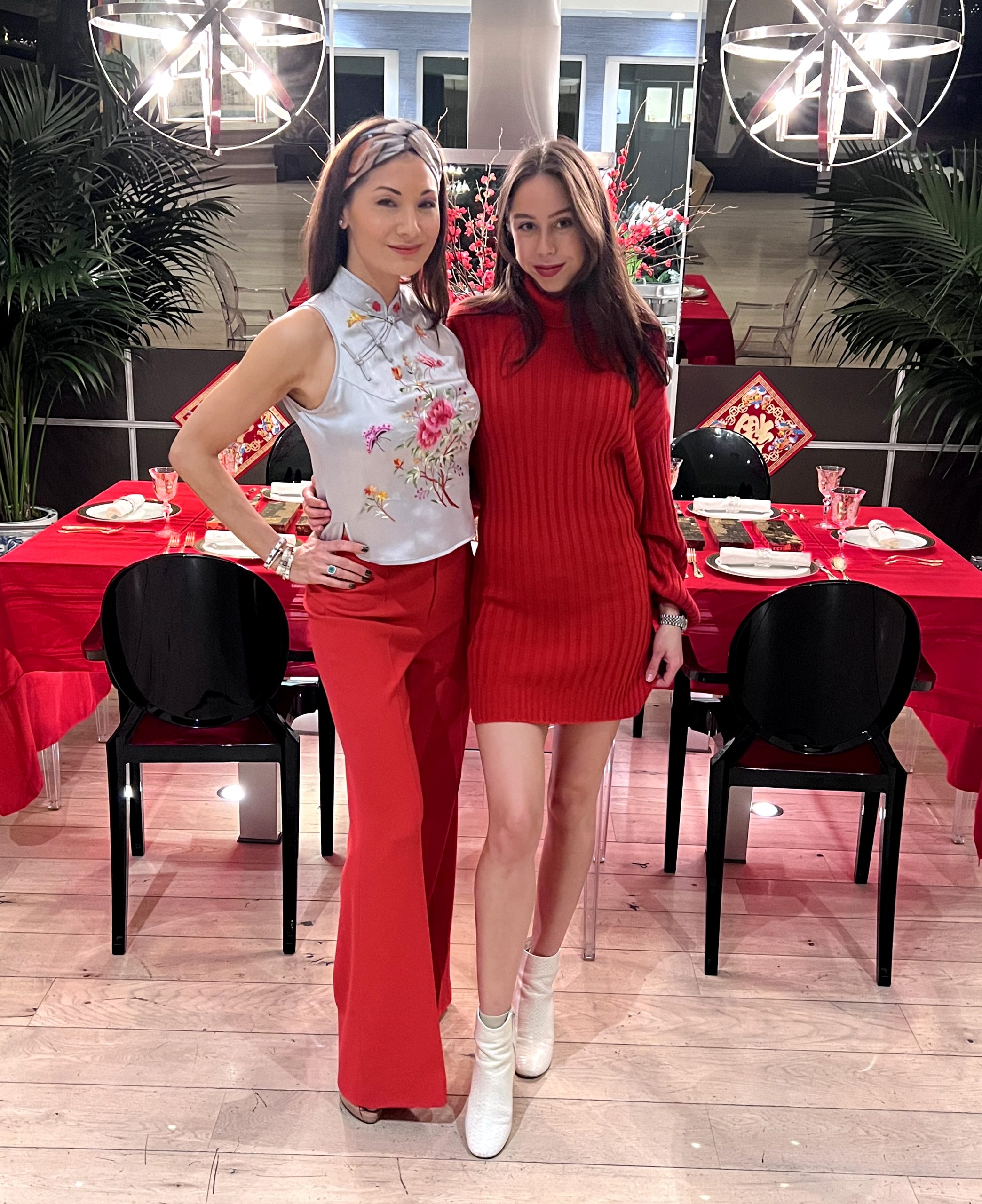Happy Lunar New Year! A few traditions I’ve learned over the years from my mom and also my aunties and good ol’ online research:
Chinese New Year (a.k.a. Lunar New Year or Spring Festival) is the most important celebration in China. The 16-day festival takes place this year from January 31, 2022, to February 15, 2022. It signals the beginning of spring and the start of the new year (on the lunar calendar).
When I was a kid, my family would have big dinners at home or go to Chinese restaurants in Monterey Park with all our relatives who were in town to celebrate. For many years, my mom would throw big Chinese New Year parties at our house with lion dancers and acrobats. Lion dance performances, along with fireworks, are believed to bring good luck and drive away evil spirits.
This year, we are celebrating at home with a small group of family and close friends.
Here are some of the decorations I put up around the house:
This character above says Lucky Fortune. One thing I learned this year is that you hang the character upside down (usually my mom would put up the decorations so I didn’t notice…). Why does the character go upside down? The Chinese believe this causes good fortune to literally descend down on your house. The Chinese word for ‘arrive’ is synonymous with the word for ‘upside-down’, so by hanging the character upside-down, the meaning changes to ‘good fortune is arriving’.
It’s traditional to thoroughly clean your home before the new year to sweep away any ill fortune and make way for incoming good luck. It’s also traditional to offer sacrifices to deities and honor your ancestors at this time.
The colors, red and gold, signify good luck.
Tangerines, kumquats, and oranges are common gifts and offerings because they’re believed to bring good luck and happiness. In Chinese, the words for ‘orange’ and ‘tangerine’ closely resemble the words for ‘luck’ and ‘wealth.’ The gold color of these citrus fruits also symbolizes prosperity.
Chinese wear red or other bright colors for good luck and to match the celebratory mood. It’s also a good idea to wear something new because it symbolizes a new start and fresh hope for the New Year.
Red Envelopes (lai see or hong bao) filled with crisp cash are given to children and unmarried adults. Once you’re married, you “move up in rank,” and you give out red envelopes. Now that I’m married, it’s the first year I’m doing it; however, I just learned I’m still allowed to accept lai see from my elders.
Eating certain foods is symbolic and believed to bring good luck, wealth, and longevity.
For example, eating dumplings are believed to bring prosperity in the new year since dumplings are shaped similarly to ancient Chinese money.
Here is a useful graphic I found that shows lucky foods eaten during the festival season:
Fish: prosperity
Dumplings: wealth
Spring Rolls: wealth
Sweet Rice Balls: family togetherness
Tangerines and Oranges: fullness and wealth
Glutinous Rice Cake: higher income or higher position
Longevity Noodles: happiness and longevity
Note: The auspicious symbolism of these traditional foods is based on their pronunciations or appearance.
Btw – it’s the Year of the Tiger, specifically, the Water-Tiger. The Tiger is considered the king of the jungle (in Asian cultures, it’s not the lion), and people born during the Tiger Year are believed to be brave, confident, and natural leaders. 2022 symbolizes resilience and strength.
[metaslider id=”8225″]
Wishing you all good luck, happiness, health, prosperity, and longevity in the new year!




